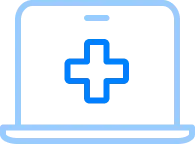At Rebuilding Recovery Center in Easton, Massachusetts, you will receive outpatient methamphetamine addiction treatment that fits your life. Our meth rehab programs include day, half-day, and virtual options so you can keep showing up for work, school, and family.
Meth is a stimulant that quickly changes how your brain feels and functions. The short high is followed by a crash, cravings, and pressure to keep using. Over time, meth use can affect mood, sleep, focus, and physical health.
Signs of meth addiction can include:
Using more often or in higher amounts than planned
Strong cravings and failed attempts to cut back
Pulling away from work, school, or relationships
Feeling low, anxious, or empty between uses
Yes, there is a difference. Both “meth” and “crystal meth” are methamphetamine, but they differ in form, potency, and how they’re used.
Both are highly addictive and can cause serious physical and mental health damage. Because crystal meth is often stronger and used in riskier ways, it is generally considered the more dangerous form.
Over time, meth use can harm parts of your body and mind. You may see changes in how you look, feel, and think.
Meth abuse can:
Common signs that someone may need structured treatment for meth addiction include:
We treat meth addiction and mental health needs together in one coordinated plan.
Your rehab plan can include 12-Step support plus CBT, DBT, and trauma-informed care.
Your loved ones can join family therapy and learn how to support your recovery safely.
You receive responsive, patient-centered care guided by our “unreasonable hospitality” approach.
We focus on relapse-prevention skills so you can reduce self-sabotage and protect your progress.
In Day Treatment, you’ll receive full-day meth addiction treatment and support without overnight stays.
Half-Day Treatment offers several hours of meth rehab while you continue work, school, or caregiving.

Secure online meth addiction treatment is provided via our Virtual Program so you can recover from home.
If medical detox is needed, we connect you with trusted detox partners before you begin meth rehab.
I love this place the people that work there are the nicest people in the world!
After trying numerous outpatient programs I felt that could not “get it” or get sober.
Highly Recommend !! Rebuilding’s Evening Outpatient Intensive Program provided me with the best way to begin my Sobriety.
At Rebuilding Recovery, we treat a range of substance use disorders, including:
Withdrawing from methamphetamines can bring low mood, fatigue, sleep changes, and strong cravings. You can help by:
Call emergency services if there are signs of chest pain, trouble breathing, severe confusion, or thoughts of self-harm.
We accept most insurance plans and verify benefits quickly. Massachusetts parity laws ensure coverage for behavioral health, including treatment for methamphetamine use disorder.

If you are ready to address meth addiction, our team will guide you through a simple, clear process.
We’ll talk through your goals and verify your insurance.
You’ll attend an in-person or virtual meeting to discuss your needs.
With our guidance, you’ll go through proven and wellness therapies.
Our team can help you transition to lower levels of care as needed.

If you or someone you love is struggling with meth addiction, help is available. Outpatient methamphetamine addiction treatment at Rebuilding Recovery Center gives you a clear plan, a caring team, and tools you can use every day.
Outpatient meth rehab means you attend treatment during the day and sleep at home. It works for people who need strong support and stable housing.
Some people need medical detox first, especially with heavy or recent use. Our team can connect you with trusted detox partners and then continue care in our programs.
Treatment length varies by person and level of care. Many people spend several weeks in structured treatment, then step down as they improve.
Yes. Half-Day Treatment and Virtual Treatment let you attend care and still meet daily responsibilities. We help you choose a schedule that fits your life.
Yes. Your information stays private, and we follow all privacy laws. We only speak with others if you give written permission or when required by law.
Many people use more than one substance. Our clinicians treat meth addiction and other substances in one integrated plan.
We believe financial concerns shouldn’t be a barrier to treatment, so we’ll assist you in navigating the process. Fill in this form to verify your insurance and learn more about your options.
"*" indicates required fields